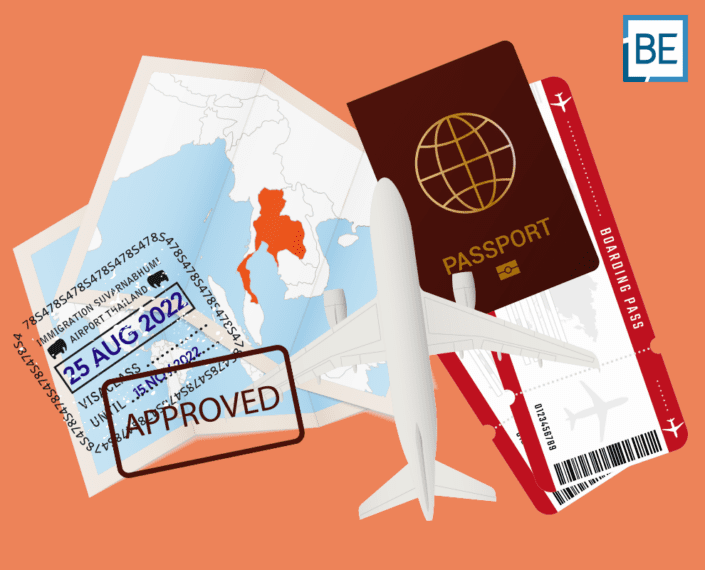Belaws Home ›› Thailand ›› Blog ›› Thailand is considering a new Labor law for Work-from-Home arrangements
News
Thailand is considering a new Work-from-Home law
23/08/2022
Due to the COVID-19 pandemic, much of the world allowed their staff to work from home. Thailand was no different and employers were asked to allow their employees to work-from-home in order to prevent infections spreading in the workplace.
These work-from-home measures proved to be hugely popular and have subsequently become the norm for employees. However, the pandemic has settled down and most employers have now scrapped their work-from-home policies. However, this may be about to change as the Thai parliament has recently passed the first reading of the so-called Work from Home Bill.
Key points
- An amendment to the Labour Protection Act (LPA) is being considered that will allow employees to work-from-home.
- This amendment is being designed to provide more flexibility for both employees and employers, while also helping Thailand’s notorious traffic congestion.
- The amendment states that any work-from-home arrangement must be at least eight hours per week and must be counted as the employee’s normal working time.
Why has this amendment been made?
The legislative memorandum accompanying the bill states that the proposed amendments to the LPA have been designed to facilitate more flexibility in the country’s employment arrangements and provide suitable solutions for employers and employees. Furthermore, these amendments to the LPA seem to be a way for the government to tackle Bangkok’s ever increasing traffic congestion and also reduce energy consumption.
What does the amendment plan to introduce?
Currently, the bill introduces a new subsection to the LPA. This subsection states that an employer and the employee may agree that the employee is allowed to bring and perform work at home or at residence of the employee as part of their employment contract.
The amendment also states that any work-from-home arrangement must be at least eight hours per week and must be counted as the employee’s normal working time.
However, it appears that this amendment will not be mandatory and companies do not not need to adhere to it if they don’t want to. The phrase “may agree” suggests that the employer does not have to agree and thus there is no need to add this text to the LPA.
How has the amendment been received?
The term, ‘may agree’ is currently causing problems among Thailand’s law makers. The amendment was intended to be binding upon the employer, who in turn must agree if the employee wishes to work from home. However, during the public hearing stage of the amendment, several interested parties raised concerns about the ambiguity of the term ‘may agree’.
Furthermore, many parties, including the Department of Labour Protection and Welfare, do not appear to support the amendment.
Are there any issues with the amendment?
This proposed amendment has raised a lot of questions from employers about how to put this into practice. Examples include:
- Will there be exceptions contained within the amendment relating to certain types of work or industries e.g, construction, factory operations, cleaning services, restaurants and hospitality services?
- How can worker productivity be monitored?
- How should employers monitor overtime work?
- What is meant by ‘home’ and ‘residence’. For example, can employees work from a coffee shop instead?
- Do employers have to pay for employees’ internet and electricity used to perform work?
- Can employees bring office equipment and supplies home?
- How can employers manage occupational safety?
What is the amendment’s current status?
The amendment is currently under consideration by a subcommittee. Should the amendment pass the subcommittee, it will move onto a second reading in the parliament.
How can Belaws help?
If you need more information about these changes to the Labour Protection Act may affect your business and the best ways to ensure full compliance, why not talk with one of our experts via WhatsApp.
If you would like to learn more about how our experts can help with your accounting and secretary needs, please check out our full list of services.
Please note that this article is for information purposes only and does not constitute legal advice.
Our consultations last for a period of up to 1 hour and are conducted by expert Lawyers who are fluent in English, French and Thai.
Consultations can be hosted via WhatsApp or Video Conferencing software for your convenience. A consultation with one of our legal experts is undoubtedly the best way to get all the information you need and answer any questions you may have about your new business or project.
USD 150
Up to 1 hour
Online payment (Paypal or Credit card)
Legal consultation can be conducted in English, French or Thai
Legal consultations are handled by experienced lawyers from the relevant fields of practice
Frequently asked questions
How do I get a long term residence visa for Thailand?
This visa will be available from September 2022. Applicant must also satisfy the application criteria as well.
How long can foreigners live in Thailand?
This depends on what visa person in question holds. Those who are employed by a Thai company, married to a Thai national or retired can get yearly visa extensions. Education visas and the Thailand Elite also offer longterm stays for the holders. Permanent residency and Thai citizenship is also available for qualifying people.
Can I live in Thailand permanently?
Those who qualify for Non-Immigrant O visas can extend their stays yearly, as long as they satisfy the application requirements. The Thailand Elite program also offers long term stays, which can be extended. Permanent Residency and Thai Citizenship can also be obtained (should the application requirements be met).
Can you get permanent residency in Thailand?
Thailand does offer Permanent Residence for those who satisfy the application criteria.
Can foreigners retire in Thailand?
Yes, Thailand offers a Non-immigrant O visa for retirees. There are however, application requirements that must be satisfied before applying. Examples include, monthly/yearly financial and insurance requirements.
Can I stay in Thailand for 12 months?
Thailand has various different visa options for those who wish to stay for a year (subject to qualification requirements). Examples include, the Thailand Elite visa, education visa, retirement visa etc.
What are the benefits of the Thailand LTR Visa?
Holders of an LTR visa will be eligible for many attractive benefits which have been designed to make living in Thailand long term easier and less bureaucratic.
- A discounted personal income tax rate
- Permission to work in Thailand
- Fast track at international airports
- 1 year reporting to Immigration instead of 90 days
Who is eligible for thailand LTR Visa?
The LTR visa has been designed for those who have enough work experience, income, and assets i.e. “high-potential” expats.
Essentially, the LTR visa will be available to the following groups:
- An investor who wants to invest at least $500,000 USD in Thailand
- A retiree who wants to get a 10-year visa
- A professional worker who wants to get a 10-year visa
Related articles
Subscribe today
Subscribe today
To our newsletter for all the latest legal news
in South East Asia, Belaws updates and
special promotions on our services.
To our newsletter today for all the latest legal news in South East Asia,
Belaws updates and special promotions on our services.







